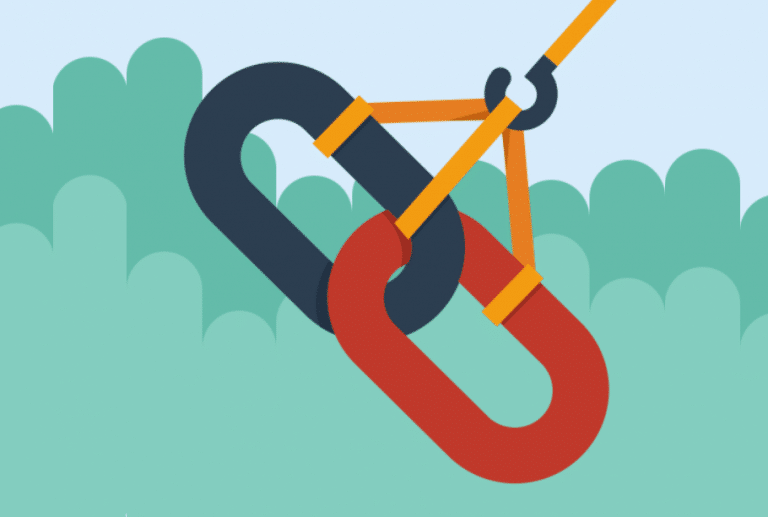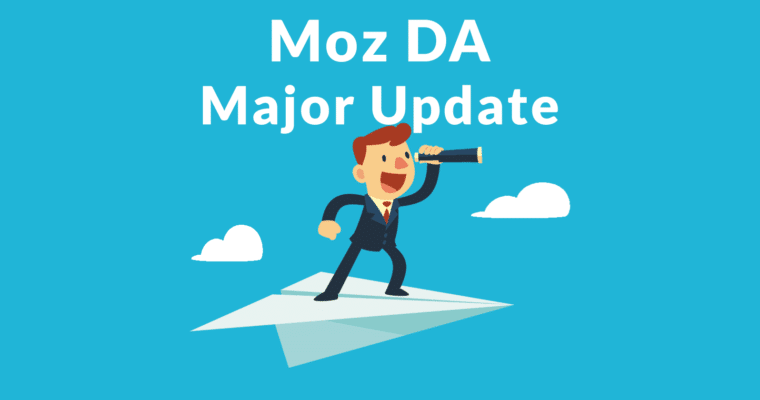Domain Authority (DA) is a search engine ranking score which forecasts how well a website will rank in search engine results pages (SERPs). Developed by Moz, DA is calculated by evaluating numerous factors (like Google’s search algorithms) and is used to track SERP ranking strength.
Moz is one of the most highly respected authorities on SEO, and while a proprietary metric, their points-based Domain Authority scoring system is used as the standard SERP-ranking metric across the SEO industry. Like many digital marketing agencies in Brisbane, Australia and across the globe, Bambrick Media’s SEO team makes great use of the Moz ecosystem, including its campaign tracker and reporting platform.
DA scores range from 1 to 100, with 1 the lowest score and 100 the highest. The higher the DA, the greater the ability of the website to rank in SERPs. As Domain Authority is scored on a logarithmic scale, increasing a DA score from 10 to 20 is far less challenging than raising a score from 50 to 60.
When considering your website’s DA score in relation to your Search Engine Optimisation (SEO) goals, your objective shouldn’t be aiming for the highest DA score possible (DA 100), but to have a higher score than your competitors.
As an SEO metric, Domain Authority is best used as a comparative score which compares your site’s ability to rank in SERPs with the websites of your competitors. Moreover, aiming for a score of 100 is futile, as only sites (like Facebook, Google and Wikipedia) with an extremely large number of high-quality external links have scores in the DA 90-100 range.
What is Page Authority (PA)?
Whereas Domain Authority approximates the ranking strength of a domain, Page Authority (PA) measures the ranking strength of a single web page. The metrics are calculated in the same way (and by a machine learning algorithm) and both metrics are extremely helpful when used as a comparative metric.
As with DA, the best way to positively influence Page Authority is to improve the page’s link profile.
How do I view my website’s Domain Authority?
There are numerous tools and platforms which you can use to check Domain Authority. As DA is a Moz metric, the best tool to use (and also one of the most user-friendly) is MozBar.
The Moz Bar extension plays a critical part in most SEO agencies’ competitive analysis strategies.
Free to use and compatible with Google Chrome, MozBar provides a range of instant metrics and insights while viewing web pages and SERPs. In addition to Domain Authority, these include:
- Page Authority (PA)
- Keyword Difficulty score
- Page optimisation suggestions
- Number of linking root domains
- Number of external followed links
- The total number of links to the domain
These insights, particularly those relating to link profiles, can guide you in making the right decisions about how best to grow your DA score in relation to your competitors. Improving overall SEO is the best way to positively influence Domain Authority, but growing your link profile by getting more high-quality links to your site should be the main focus of your efforts.
What is Link Building and why is it important for SEO?
According to Moz, “For search engines that crawl the vast metropolis of the web, links are the streets between pages. Using sophisticated link analysis, the engines can discover how pages are related to each other and in what ways.”

According to SEO expert, Neil Patel, “Links are the currency of the web.“
Search engines treat links (hyperlinks) as indications of importance and popularity, and use complex algorithms to evaluate individual pages and domains. Link-related factors aren’t the only SEO ranking factor, but as they’re one of the strongest signals, it’s vitally important to include link building as part of an SEO campaign.
Links are one of the strongest signals used by search engines like Google because no other ranking signals share the same properties as links. What’s more, many other signals that seem relevant as ranking signals, like user engagement or social media, are out of Google’s control, which explains why they aren’t used. Here are three reasons why links are a unique and immensely valuable ranking signal to Google and affect both Domain and Page Authority.
One — Endorsement
Trust is one of the three pillars of SEO — along with authority and relevance — and plays a major role in search rankings. When a web page is linked to, it shows visitors (and Google) that the content on that page is trusted as a resource.
Two — Goodwill
By linking to an external web page, i.e. a web page on another domain, it’s a suggestion that the visitor leaves the site for another. This indicates that the content is valuable enough to suggest to your visitors that they leave your site for another site and that you’ll benefit from the goodwill built with those visitors.
Three — Investment
Link buying aside, it takes time and effort to create a link — identifying and discovering content, evaluating it and linking to it from an internal web page. Google sees this time and effort as an investment, one which must deliver rewards, so it attributes value accordingly.
Taking into account the endorsement of links, the goodwill built by providing visitors with a means of leaving a site and the invested time and energy involved in implementing a link, Google rightly sees links as a uniquely valuable signal.
Moz will update Domain Authority in March 2019
Moz’s Domain Authority has long been the industry standard for measuring the ranking strength of a domain, and it’s getting a technical update in March, 2019, to make it more reliable and more trustworthy, and keep it at the forefront of SEO metrics.

Search Engine Journal’s SEO specialists believe the Moz Domain Authority update will provide “a more accurate measure of quality.“
One of the most important improvements to DA is making it better at understanding websites which don’t currently rank for any keywords at all. To achieve this, Moz has switched to a neural network instead of a highly complex linear model for its training algorithm which improves link detection capabilities, integrated their proprietary Spam Score and improved correlation.
This means that Domain Authority will be more responsive to Google’s changes and an even more trustworthy SEO metric than before. However, it’s important to note that there will be fluctuations in DA score when the new Domain Authority is introduced in March, 2019.
As mentioned earlier, Domain Authority is a relative metric and, to quote Moz, “is meaningless when it isn’t compared to other sites.” This means that it doesn’t matter if your DA score increases or drops when the new Domain Authority is introduced, it only matters whether it increases or drops in relation to your competitors.
Our Brisbane-based SEO team recommends checking your DA score and your competitors’ DA scores at the end of February or beginning of March and then checking again a few days after Moz rolls out the new Domain Authority on March 5th, 2019.
Change is disruptive but it presents opportunities for those who are open to it. With the new and improved Domain Authority, we’re confident that we’ll be able to make better, more informed decisions about your SEO campaign and deliver even better results for your business.
Brisbane SEO agency, Bambrick Media, has helped hundreds of local and national businesses raise their SERP visibility and connect with more potential clients and customers. If you recognise the importance of online visibility as a means of connecting with people looking for businesses like yours, get in touch. We’d love to sit down and discuss your Search Engine Optimisation and Digital Marketing goals with you at a convenient time. To book a free strategy session with a Brisbane-based SEO strategist, contact us here.